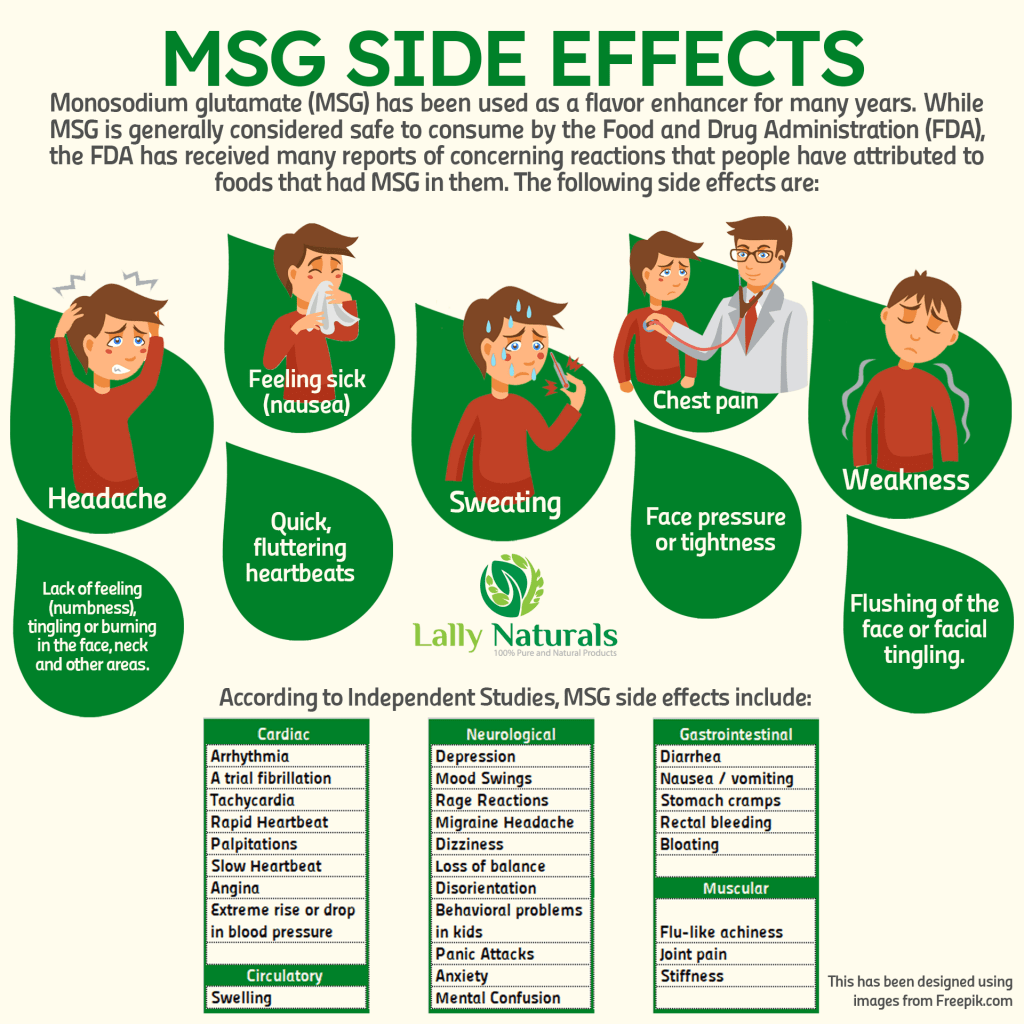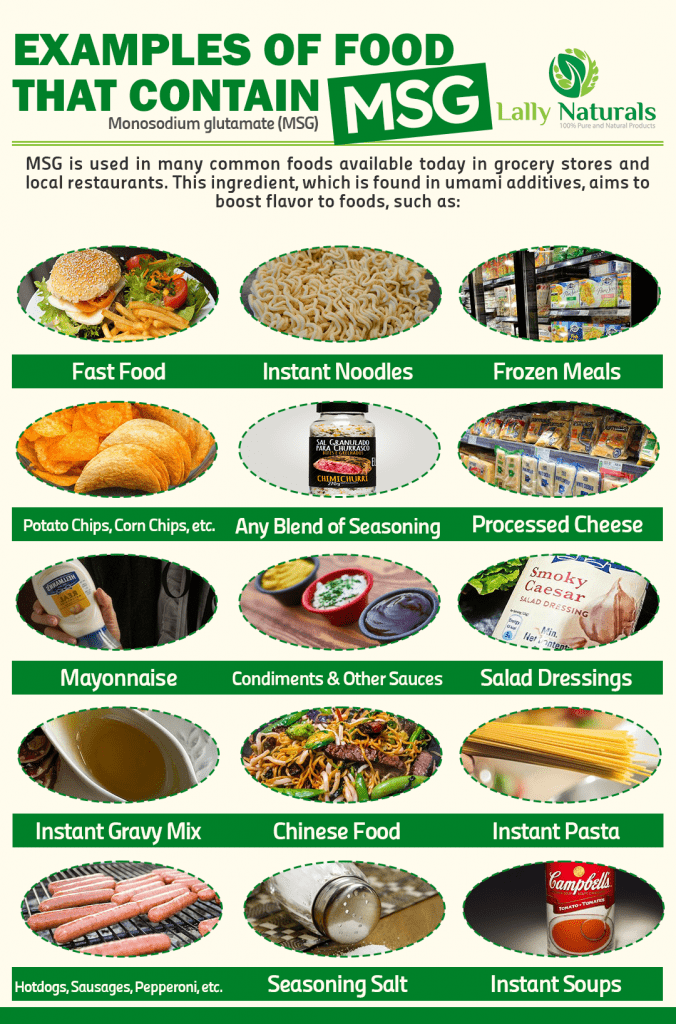Posts Tagged ‘msg diabetes’

Does MSG Affect Diabetes?
What is MSG?
MSG is a short form of monosodium glutamate. Intake of MSG in healthy adults has been linked with type 2 diabetes, obesity, and metabolic syndrome.
This is because, regardless of energy intake, intake of MSG in healthy adults correlates with the resulting increase in body mass index.
It is a flavor-improving substance made from L-glutamic acid, which occurs naturally in many meals.
Because l-glutamic acid is a non-essential amino acid, your body can make it on its own and does not require food to provide it. MSG is a common food additive that is a white, odorless crystalline powder.
It is referred to as E621 in the food business. With little effort, it dissolves in water and separates into sodium and free glutamate.
It is created by fermenting sugary ingredients including molasses, sugar cane, and sugar beet.
Your body cannot differentiate the difference between glutamic acid found naturally in some foods and that found in MSG since there is no chemical difference between them.
Unami, a distinct flavor associated with MSG, is the fifth basic flavor after sweet, sour, salty, and bitter. The flavor of Unami is described as “meaty,” alluding to the presence of proteins in food.
Inosine 5’-monophosphate (IMP) and guanosine 5’-monophosphate (GMP) as other Unami compounds apart from MSG. MSG is widely utilized in processed foods in the West and is popular in Asian cuisine.
People’s typical daily intake is thought to range between 0.3 and 1.0 grams. MSG is typically consumed in processed and packaged foods in Western nations, but it is frequently added to home cooking in China.
650,000 tons of MSG are used globally every year according to estimates. Increased risk of insulin, diabetes, and obesity has been found to be brought by intake of MSG in studies done in rodents.
The association between MSG intake and the risk of hyperglycemia after five years was assessed by researchers in the Jiangsu Nutrition Study (JIN) study that was based on a large population-based in China.
A total of 1056 people (445 men and 611 women) with fasting plasma glucose of 7.0 mmol/l (FPG>126 mg/dl) or having known diabetes and hyperglycemia as FPG>5.6 mmol/l (FPG>100.9 mg/dl) were involved in the Jiangsu Nutrition Study (JIN).
Each household was asked about their usual monthly consumption of these items to determine the amount of MSG and other seasonings consumed by individuals.
The quantity of MSG consumed per person was determined by dividing the total amount of MSG consumed by the number of people living in the household by the number of people in each household.
This figure was then adjusted for the proportion of each person’s energy intake and consumption. Also evaluated in 1056 participants was the consumption of alcohol and cigarette smoking.

It was found by the authors that the mean intake for the entire population that participated in the research was 3.8 g/day.
Even after adjustment for a number of covariates, including dietary patterns, it was found that the highest quartile of MSG intake was associated with a lower risk of incident hyperglycemia.
Based on the findings of this study, the authors came to the conclusion that Chinese individuals who consume a lot of MSG have a lower chance of developing hyperglycemia.
To establish the casual links between MSG intake and hyperglycemia, more research is needed.
For many years, MSG has been used as a food additive. The FDA has received multiple reports of concerning reactions that people have attributed to foods that had MSG in them during this time.
The concerning reactions were known as MSG symptom complex and they included the following:
• Headache
• Flushing
• Sweating
• Face pressure or tightness
• Numbness (lack of feeling), tingling or burning in the face, neck, and other areas
• Quick fluttering heartbeats
• Chest pain
• Nausea or feeling sick
• Weakness
Common foods that contain MSG
Many different foods especially those that are high in protein contain MSG present naturally. Additionally, during processing, MSG is added to ingredients and other foods.
These are some of the common foods that you may be eating daily that contain MSG:
• Animal-based protein: chicken, beef, salmon, mackerel, scallops, crab, shrimp
• Cheese: Parmesan, Emmenthal, cheddar, Roquefort
• Vegetables: tomatoes, onions, cabbage, green peas, spinach, mushroom, broccoli
• Processed meats: pepperoni, bacon, pastrami, sausages, salami
• Sauces and dressings: soy sauce, ketchup, mustard, mayonnaise, barbecue sauce, salad dressing
• Premade and packaged foods: canned soups, canned tuna, frozen meals, crackers, potato chips, flavored snacks
• Condiments: seasoning blends, rubs
Further, to season menu items like fried chicken, chicken nuggets, and fries, fast-food chains such as McDonald’s, Chic-fill-A, and KFC use MSG.
1. Does MSG spike insulin?
Fasting healthy subjects given monosodium glutamate orally has been shown to raise plasma insulin levels without changing blood glucose levels.
2. What is MSG made of?
MSG stands for Monosodium Glutamate and it is consisting of water, sodium, and glutamate. An amino acid used to make proteins in food and our body is known as glutamate. There is no distinct flavor associated with MSG.
3. Does MSG spike blood pressure?
A significant increase in SBP and DBP was associated with MSG intake. SBP and DBP were more likely to rise in women who consumed a lot of MSG. Consumption of total glutamate was likewise positively correlated with a rise in SBP.
4. Does Chinese Food Spike Blood Sugar?
In diabetes, Chinese foods are considered one of the worst foods to consume. This is because they are high in calories, sodium, fat, and carbohydrates that can dramatically increase your blood sugar levels.
5. Is MSG Worse Than Salt?
Reaching for MSG to flavor your food can help you eat less sodium since it contains two-thirds less the amount of sodium compared to table salt. Therefore, it is a great option if you are looking to lower your sodium intake.
6. Is MSG Harmful?
MSG has been classified as a food ingredient that is generally recognized as safe by the U.S. Food and Drug Administration (FDA), although many health advocates do not agree with this assessment.
7. Does MSG Cause Inflammation?
MSG – Monosodium glutamate, which is frequently found in Asian cuisine, especially dishes made with soy sauce, can cause inflammation. Additionally, canned soups, salad dressings, and several fast foods frequently include it.
8. Does MSG Affect Cholesterol?
The results of the current study also showed that oral administration of MSG considerably increased the levels of serum LDL and VLDL cholesterol in the treatment groups. Additionally, a notable decline in HDL level was seen.
9. Is Ajinomoto Same As MSG?
Basically, Ajinomoto and MSG are the same things. MSG is the brand name of the product, and Ajinomoto is the name of the Japanese manufacturer.
The brand name Ajinomoto itself became rather well-known for the product, so the business copyrighted it to ensure exclusivity.
10. Why Is Ajinomoto Harmful?
It may cause a number of problems, including tingling and burning in the face and neck. The MSG in question is a neurotransmitter that activates the nerves and throws the neurotransmitter equilibrium.
Ajinomoto has a connection to these conditions, which can include illnesses like Alzheimer’s, Parkinson’s, and Huntington’s.
11. How Do You Avoid MSG?
The only sure way of avoiding prepacked food products is by making everything from unprocessed ingredients since MSG is pretty much in them.
Additionally, rather than dining out or purchasing frozen meals, cook your food. Rather than processed, canned or vacuum packed, buy your ingredients in the raw.
12. What Should a Diabetic Eat at A Chinese Restaurant?
You should focus on dishes packed full of lean proteins and vegetables with limited rice and noodles when ordering Chinese. An example might be steamed chicken and broccoli with the sauce on the side.
13. How Long Does MSG Stay in Your System?
Symptoms brought on by MSG are normally mild and disappear completely on their own within 72 hours.
However, you should speak to your healthcare provider, if your symptoms do not appear to resolve or continue worsening after 48 hours as it may be something more serious.
14. What Does MSG Do in Your Stomach?
A number of acid-dependent disorders may have their pathophysiology associated with the stimulating impact of MSG on the basal secretion of hydrochloric acid in the stomach.
MSG overuse can result in “Chinese Restaurant Syndrome,” gastritis, and duodenal and stomach ulcers.
15. Does MSG Affect Your Joints?
Other goods that include MSG, such as flavored canned potato chips, canned soups, soup mixes, salad dressings, and other processed sauces, are mostly unknown to the majority of people.
MSG contributes to persistent inflammation and makes age- and injury-related joint pain worse.
16. What Does MSG Do to The Brain?
MSG causes havoc on brain processes as well as the death of brain cells when it enters the brain.
Even in tiny amounts, MSG can produce reactions in many people within 48 hours, which might make it challenging to identify the exact dish that caused the reaction.
17. Does MSG Make You Gain Weight?
People who eat more MSG are more likely to be overweight or obese according to the researchers’ results.
And the risk was not just elevated because people were overindulging in MSG-rich meals. Even after taking into consideration the total quantity of calories people consumed, the association between high MSG consumption and being overweight persisted.
18. How Can You Tell If Food Has MSG In It?
In the ingredient list on the label of the majority of packaged foods, food makers must indicate when MSG is included, either by name or by its addictive code number 621. For instance, MSG might be identified as a Flavor enhancer (MSG).
19. How Much MSG Is Too Much?
While there is conflicting evidence regarding how MSG may affect general health, it is obvious that taking excessive amounts of the flavoring—3 grams or more daily—is likely to have negative side effects, such as headache and raised blood pressure.
20. How Do You Flush Out MSG?
Numerous glasses of water may lessen the severity of your symptoms and assist in flushing the MSG from your body.
Conclusion
The body of research on MSG’s impact on diabetes is unclear and has significant gaps. It’s possible that eating MSG will have negative effects.
The majority of these effects are noticeable at oral doses greater than 2000 mg/kg as well as at lower levels via gavage or injection. Lower oral doses, however, did not offer convincing proof.
Given the diversity of type 2 diabetes, MSG may be one of the many environmental factors that contribute to the condition.



